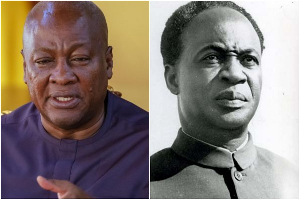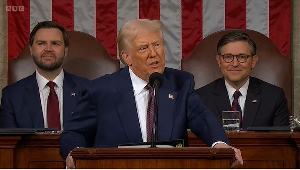Accra, Aug. 25, GNA – Third Network Africa (TWN) on Thursday asked government to dump the interim Economic Partnership Agreement (EPA) it had signed with the European Union (EU) about four years ago, saying it poses a threat to regional integration in the West African sub-region.
Mr Gyekye Tanoh, Head of Economic Unit, TWN, said Ghana’s continuous use of IEPA, was a threat to re-positioning of the national economy and to regional integration in the Economic Community of West African States bloc.
Besides, the country’s IEPA undermines the ECOWAS EPA positions and process.
EPAs are reciprocal trade arrangement that the EU is seeking to forge with African, Carribean and Pacific countries in place of the preferential regime under the Cotonou Agreement, which allows the countries tariff and duty free exports to the EU.
“Today, more than 90 per cent of Ghana’s most dynamic manufacturing exports go to the West Africa sub-region. As we have already discussed, the EPAs directly undermine this,” he said.
Mr Tanoh was speaking at a stakeholders’ forum on the Ghana Interim EPA process in Accra. The forum forms part of the organisation’s coordination work of the National Civil Society Organisations Platform on EPAs.
The forum comes ahead of the ECOWAS Ministerial Monitoring Committee (MMC) meeting on EPAs scheduled for Accra in September this year. The MMC is the highest EPA authority for ECOWAS and its member–states.
Ghana initialled a separate IEPA with the European Union in December 2007 to end uncertainty and protect a very small group of exporters who depend almost exclusively on the EU market as their products would have attracted additional tariffs upon expiration of the non-reciprocal trade regime.
Mr Tanoh said there were strong signals that Ghana would finalise and ratify its IEPA as a substantive bilateral agreement just as Cote d’Ivoire.
He said the IEPAs as an additional trade regime would further split and derail harmonisation of West Africa’s regional position and regional integration.
“We therefore urge Ghana Government to reject the IEPAs and join the ECOWAS harmonisation and integration process as the country’s current approach has introduced confusion in these regional EPA processes,” Mr Tanoh said.
Ghana’s current stance further threatens to introduce multiple trade regimes in West Africa, a very dangerous step. Ghana’s position is also holding to ransom the country’s economy and the much larger Ghanaian exporting community that is less dependent on the EU market.
Mr Tanoh said the IEPAs would make it easier for the overall regional EPA process and efforts to develop coherent common tariff regimes that provide sufficient developmental space.
Dr David Pessey, Consultant Ghana National Association of Poultry Farmers, said unbridled importation of chicken from Europe had led to the collapse of the local poultry industry.
He said the cost of imported poultry products was relatively cheaper because foreign farmers receive heavy subsidy from their governments, get loans at cheaper rates and thereby making it difficult for locals to compete.
Dr Pessey said the EPAs would add to the woes of the country and deepen unemployment.
Dr John Hawkins Asiedu, Economist with the Ministry of Trade and Industry, said any EPA signed by ECOWAS would supersede Ghana’s arrangement with the European Union.
Business News of Thursday, 25 August 2011
Source: GNA
















